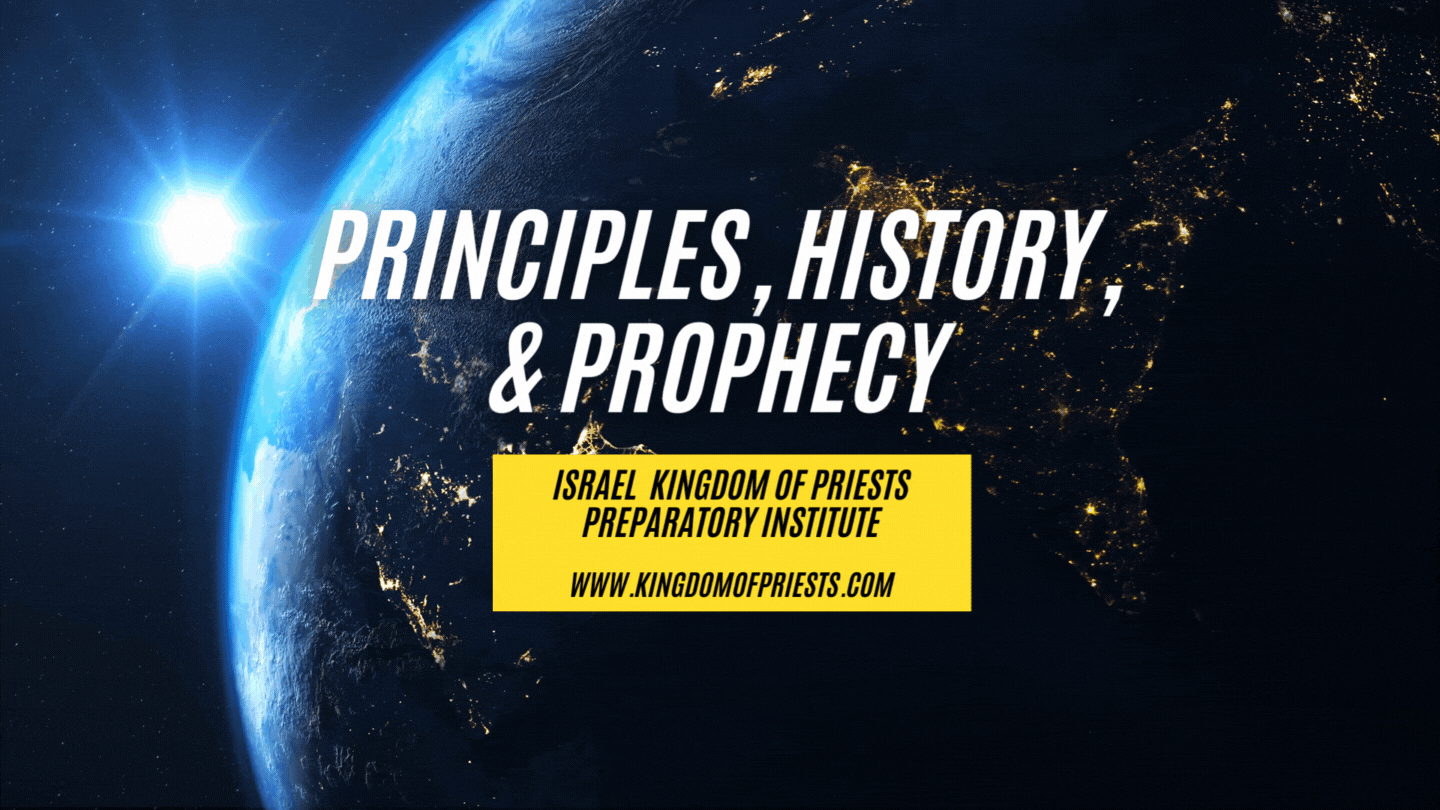Principles History Prophecy and the Word of God
When you study the Bible, the Bible has many components, but these 3 pillars are the staple or main portions.
- History
- Prophecy
- and Principles
The way the world is today, things are based on the principles or laws, the rules or code of ethics we as a species choose to live by. Thus principles are key. The Creator gave us principles to live by.
In addition to principles, our world is shaped by historical records. While many of these (records) have been altered, tampered with, and rewritten for the benefit of those who had them done, history still tells us what principles our ancestors chose to live by. This informs us of why life is the way we are experiencing it right now, and this gives us a solid idea of what we can do today to correct or improve upon our future.
Last is prophecy. Prophecy is the future. History and principles together tell us what our future will be.
An example of this can be accessed in the law of the human body. Intoxicating smoke to the lungs damages the cells and tissue of the lungs. This done over the years has been shown in historical records to cause diseases. Thus, from data (historical records), and the principle (smoking causes lung damage), we can prophesy; the person doing this, will die a slow painful death.
This is how you must study your Bible or any other spiritual book you endeavor (since this is Bible Study Ministry, we’re focused on the Bible and related works). You must learn the history, comprehend the principles, and you are sure to have better wisdom in the spirit of prophecy.
What are principles?
Definitions online come back saying, “a fundamental truth or proposition that serves as the foundation for a system of belief or behavior or for a chain of reasoning.” Again, “a rule or belief governing one’s personal behavior.” We have “morally correct behavior and attitudes.” While we’re at it, we can upload this one too; “a general scientific theorem or law that has numerous special applications across a wide field.” From an etymological standpoint, in late Middle English, principle meant first and chief. In Latin, it meant the source or the foundations.
Merriam and Webster (dictionary) state it as 1a: a comprehensive and fundamental law, doctrine, or assumption. b(1): a rule or code of conduct. (2): habitual devotion to right principles as a man of principle. c: the laws or facts of nature underlying the working of an artificial device. Let’s roll with Merriam and Webster, principles are comprehensive and fundamental laws, doctrines, rules, or codes of conduct in which to operate in, be it man, institution, or machine. The institution of man and mankind should all have free will and a code of conduct, the law of the land helps us live cohesively, coherently, and conducive-ly.
When it comes down to it, principles are laws, rules, regulations, and ordinances. They are precepts, general rules intended to regulate behavior or thought. This is why precept must be upon precept, line upon line; when you break them, sometimes you have to get your head split. Why? It’s the principle. Sometimes we used to put it on G.P. Not Gary Payton, but the general principle.
Moses, the great prophet, once upon a time came down from a mountain with principles for the children of Israel to live by. Unknown to many children of Israel today is that Moses came down with the commandments and saw the party going on with the golden calves. On top of that, they’d already ask not to hear from God directly, but to hear from Moses. Further, they wanted to live as they lived in Egypt. So you know the story, back up Moses went and he received a complete set of laws, which resembled the nations, Egypt.
Did you think about Hammurabi? Good.
Well, Christ taught that He did not come to destroy the laws of Moses, in fact, He came to fulfill them. Further, the law of Moses and the prophets point all men to Christ. Now, here is the confusion. People believe this means the animal sacrifice, the feast days, and all the ceremonial ordinances, such as wearing fringes, wearing a beard, and women wearing head coverings are still in place because Christ didn’t destroy them. But that’s not exactly the case. And I know this will be a hot-button topic, so I’ll simplify it with the word Order and Ordinance. There is a law under the Order of Aaron, and one under the Order of Melchizedek. Aaron’s order pointed to Melchizedek to help you fulfill the Law. the Law Christ is truly referring to are those found in the Order of Himself, the Son of God.
Hear this now!
This is why your righteousness must exceed the righteousness of the scribes and Pharisees in order to enter into the kingdom of heaven. Why, if you are thinking? It’s because the scribes and Pharisees operate under the law and order of Aaron. This often has people following carnal ordinances and withholding the spiritual essence of the carnal ordinance. In English or plainness, they will keep a carnal order like wearing fringes (and I’m not picking on anyone). And with the same fringed outfit, they dishonor their parents, wife, husband, stranger, and cattle. The fringes represent the reminder to keep the law of Moses; they are keeping the carnal ordinance, but forsaking the spiritual essence of to commandment. Therefore, think not that Christ came to destroy the law that has already been given to us by Moses and the prophets before Christ. But do not leave them undone.

